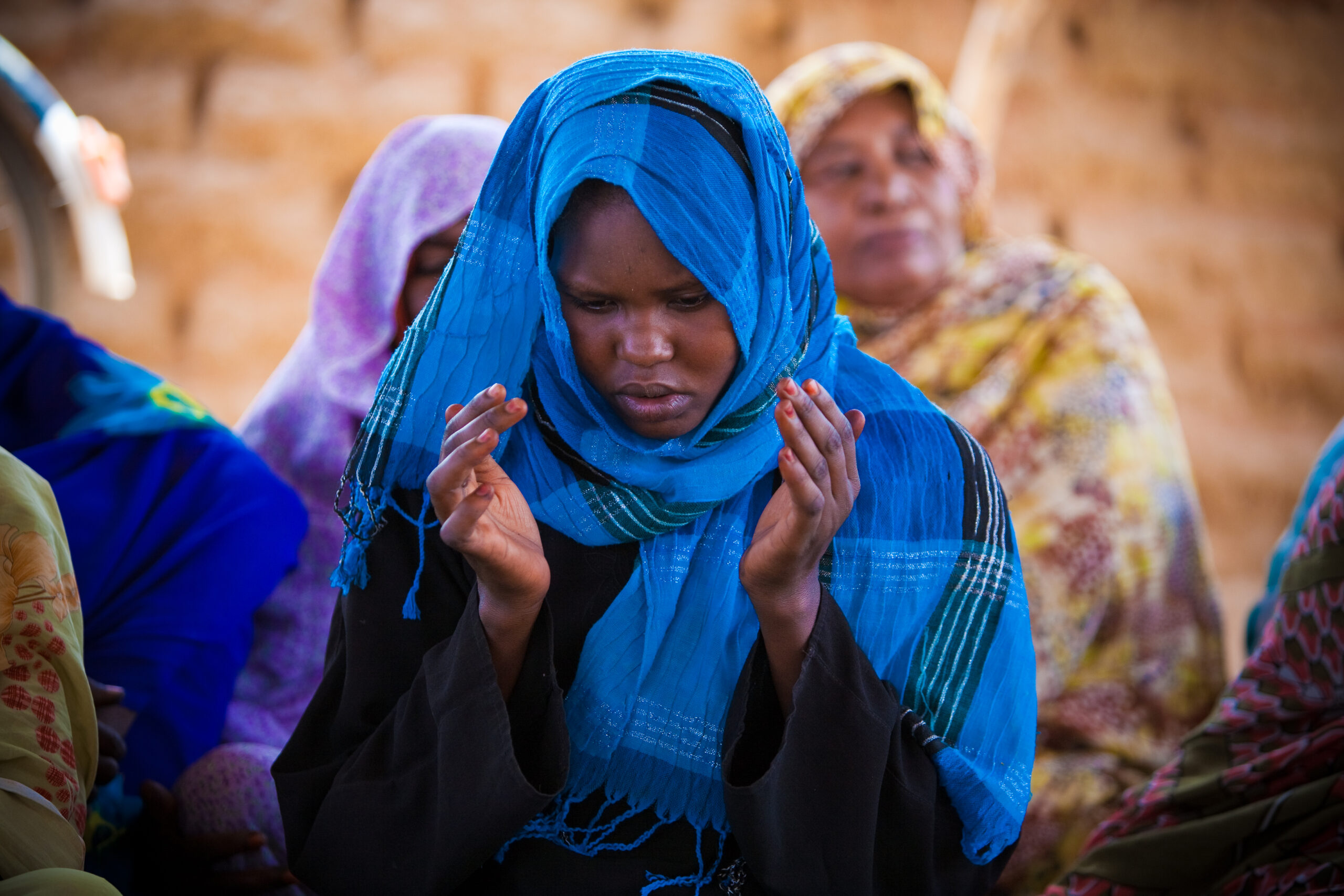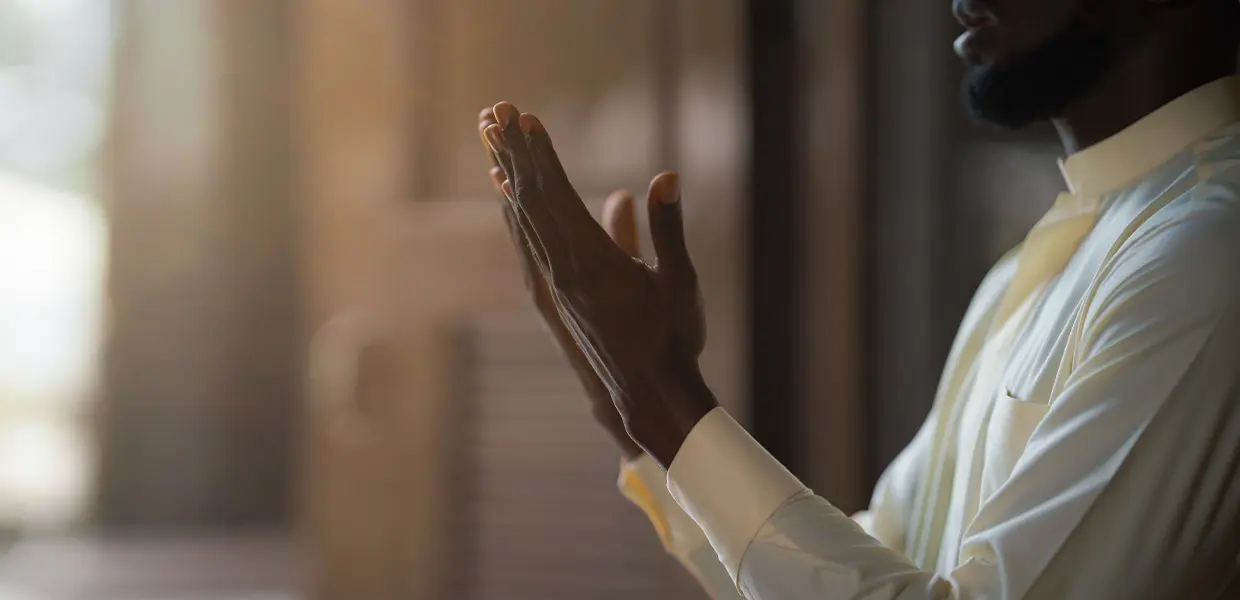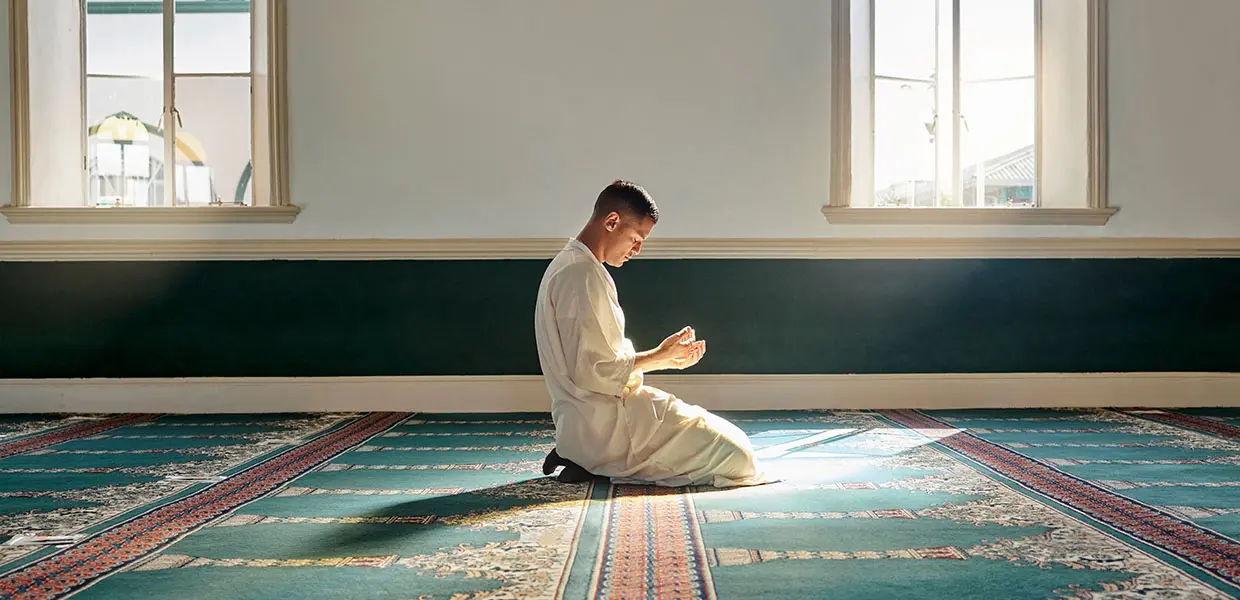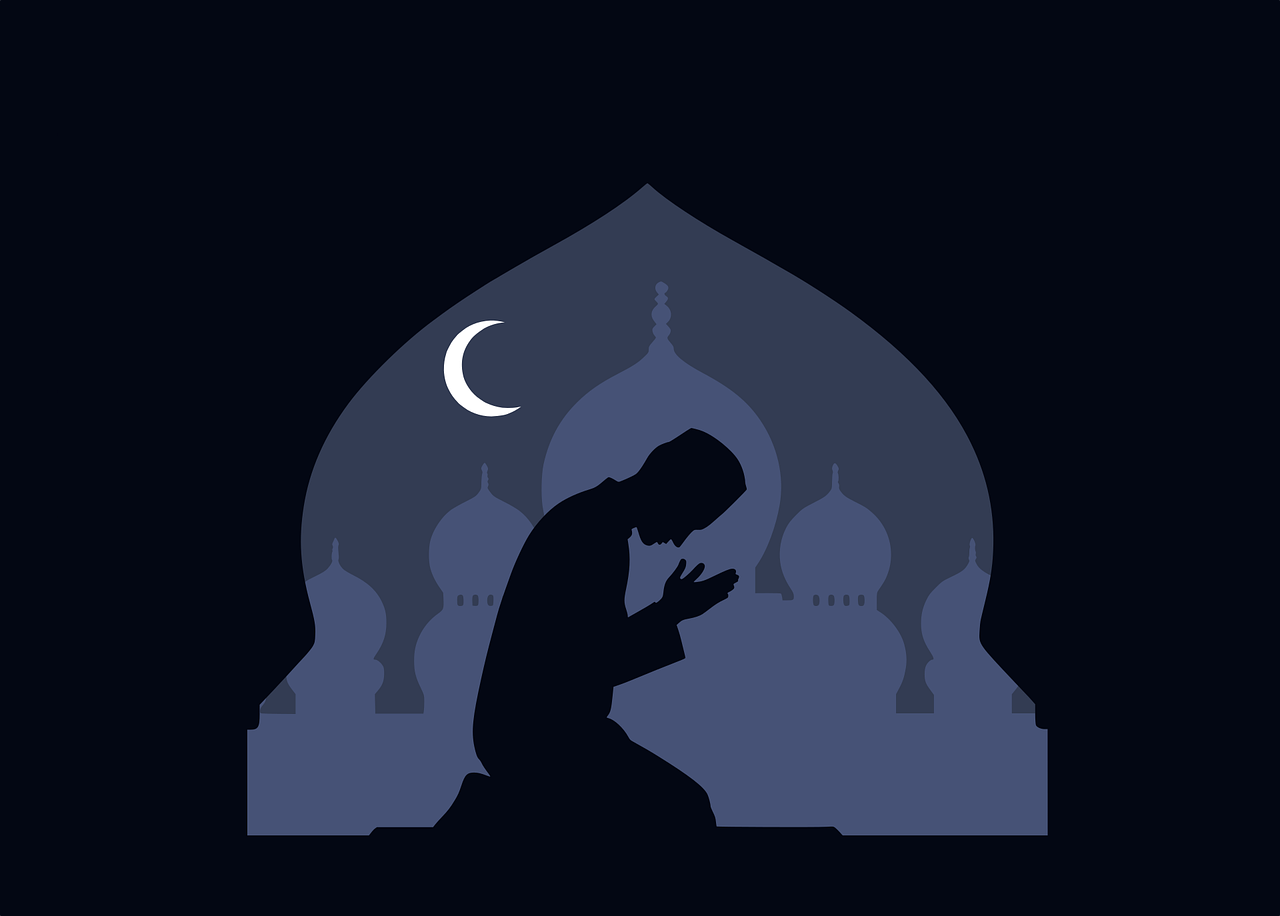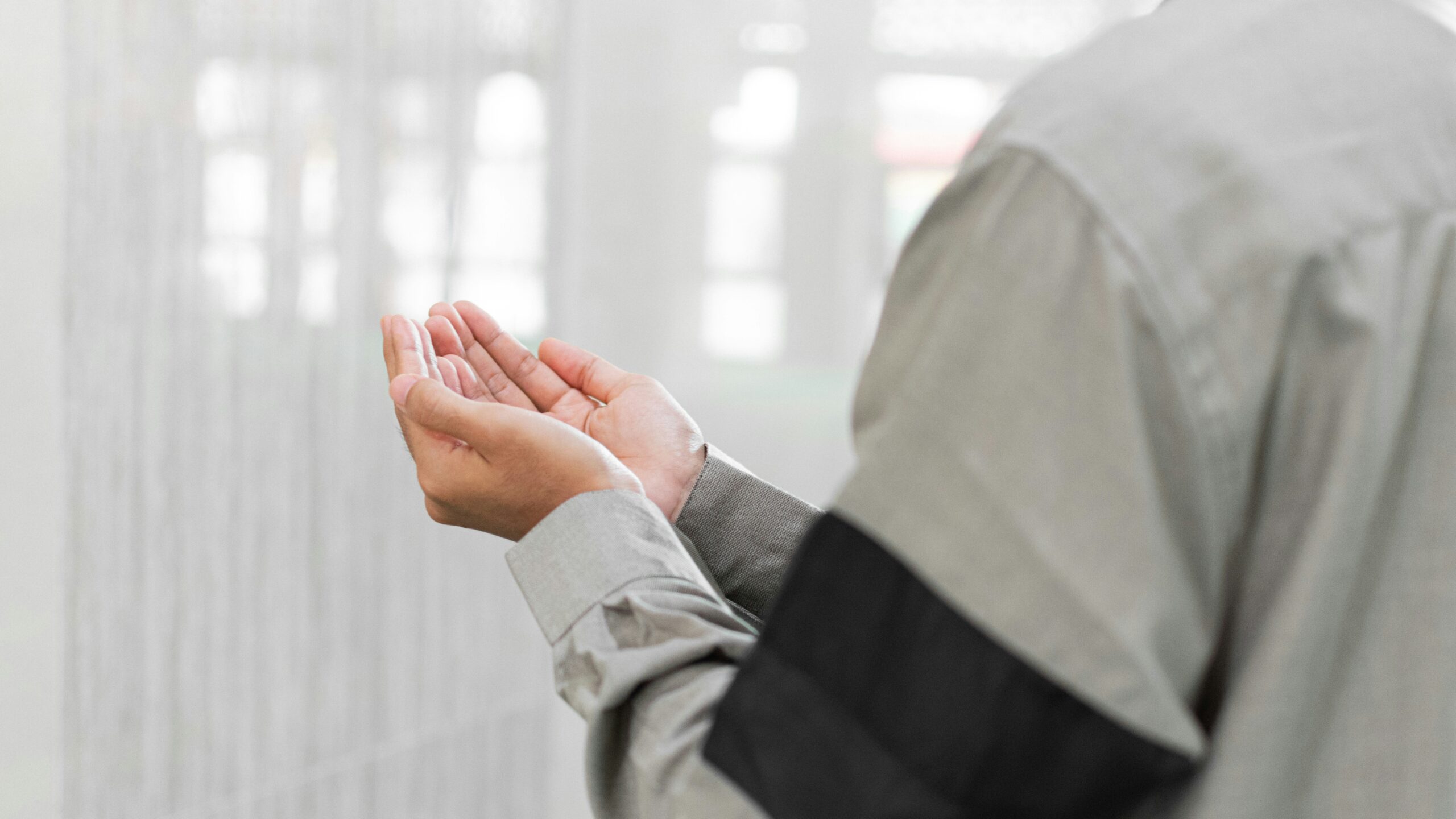
03.04.24
10 Simple Duas You Can Memorise for Ramadan
Allahumma Ballighna Ramadan
اَللّهُمَّ بَلِّغْنَا رَمَضَان
“Oh Allah let us reach Ramadan.”
Ramadan, a month of blessings and reflection, is one of the best times to increase in making dua.
With the Holy month upon us once again, we have an incredible opportunity. To earn more rewards by expanding on the duas we already know and reciting them as much as we can throughout this blessed time.
As Allah (SWT) says in the Quran:
“Now, if My servants ask you [O Prophet] about Me — then, indeed, I am near. I answer the call of the caller when he calls upon Me. Then let them all respond to Me, so that they may be rightly guided.”
Al-Baqarah, 2:186
It is also in the month of fasting that we should be encouraged to make more dua. As the Prophet (ﷺ) said, “Indeed the prayer of the fasting person during his break is not rejected.” (Sunan Ibn Majah). He also reminded us that, “Dua is the essence of worship.” (Tirmidhi)
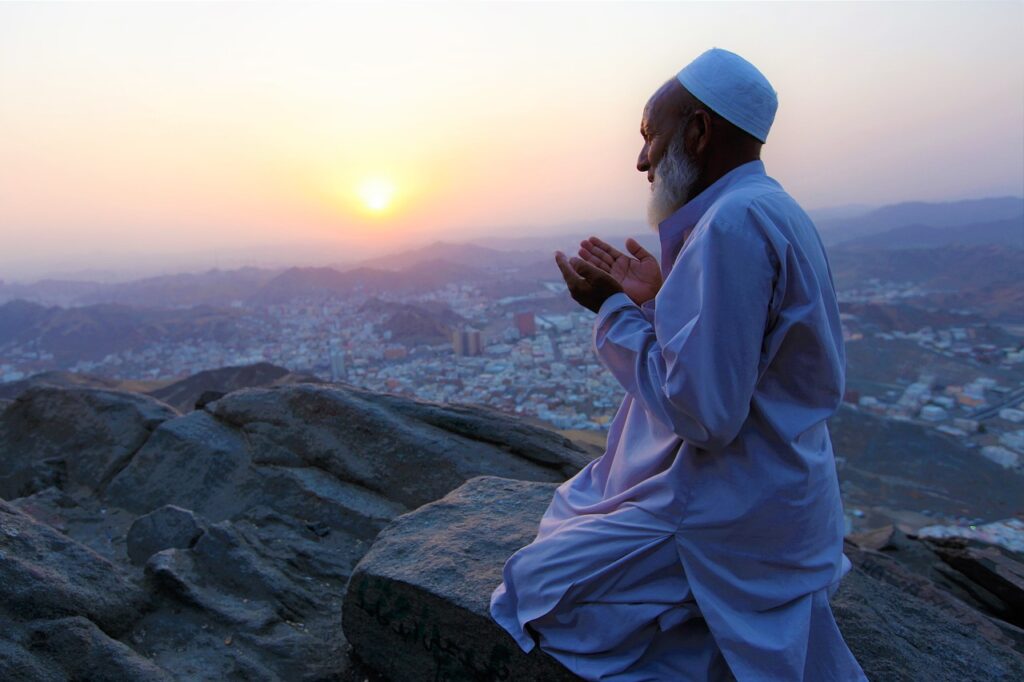
In this time when the gates of heaven are wide open and rewards are multiplied, let’s make the most of it. Here’s a list of ten simple and beautiful dua to help you prepare for Ramadan and accompany you throughout this blessed month!
Dua for Sighting the Moon
The sighting of the new moon marks the start of Ramadan. Hence, making dua for it holds a high significance. The Prophet (ﷺ) used to recite this dua when looking for the new moon:
Allahumma ahillahu ‘alaina bil-amni wal-iman, was-salamati wal-Islam, Rabbi wa Rabbuk-Allah, Hilalu rushdin wa khairin
Tirmidhi
اللَّهُمَّ أَهِلَّهُ علَيْنَا بِالأَمْنِ والإِيمَانِ، وَالسَّلامَةِ والإِسْلامِ، رَبِّي ورَبُّكَ اللَّه، هِلالُ رُشْدٍ وخَيْرٍ
“O Allah, let this moon appear on us with security and Iman; with safety and Islam. (O moon!) Your Lord and mine is Allah. May this moon be bringing guidance and good.”
Also say it when looking for the new moon of Shawwal, which marks the day of Eid Al-Fitr, the end of Ramadan.
Dua for Beginning the Fast
All good deeds start with a sincere intention. Use this dua to renew your intention to keep your fast throughout the month of Ramadan. Make sure to recite it before or at Suhoor/Sehri.
Wa bisawmi ghadinn nawaiytu min shahri ramadan
Sunan Abi Dawud
وَبِصَوْمِ غَدٍ نَّوَيْتُ مِنْ شَهْرِ رَمَضَانَ
“I intend to keep the fast for tomorrow in the month of Ramadan.”
Dua for breaking your fast
Even after a long day of fasting, we should still remember Allah (SWT) at Iftar time. At this moment you end your fast, recite this dua to make your first bite of food or sip of drink even sweeter and richer.
Dhahaba al-zama’u, wa’btallat al-‘urooqu, wa thabata al-ajru insha’Allah.
Sunan Abi Dawud
ذَهَبَ الظَّمَأُ، وَابْتَلَّتِ العُرُوقُ، وَثَبَتَ الأَجْرُ إِنْ شَاءَ اللَّهُ
“The thirst has gone, the veins are moistened and the reward is assured, if Allah wills.”
Dua for the one who invites you for iftar
The reward of feeding a person who fasts is with Allah (SWT). But one of the best gifts you can give to someone who has invited you for iftar during Ramadan is a sincere dua.
This was the dua the Prophet (ﷺ) made when Sa’ad, may Allah be pleased with him, hosted him for Iftar, covering everything from food to companionship to angels.
Aftara ‘indakum as-sa’imun wa-akala ta‘amakum al-abrar wa-sallat ‘alaykum al-mala’ika
Sunan Ibn Majah
أفْطَرَ عِنْدَكُمُ الصَّائِمُونَ وَأكَلَ طَعَامَكُمُ الأَبرَارُ وَصَلَّتْ عَلَيْكُمُ المَلاَئِكَةُ
“May those who have fasted break their fast with you, may the pious eat your food, and may the angels pray for you.”
Dua for Laylatul Qadr
There was one dua that the Prophet (ﷺ) singled out for Ramadan. More specifically, for Laylatul Qadr, the Night of Power or Night of Degree.
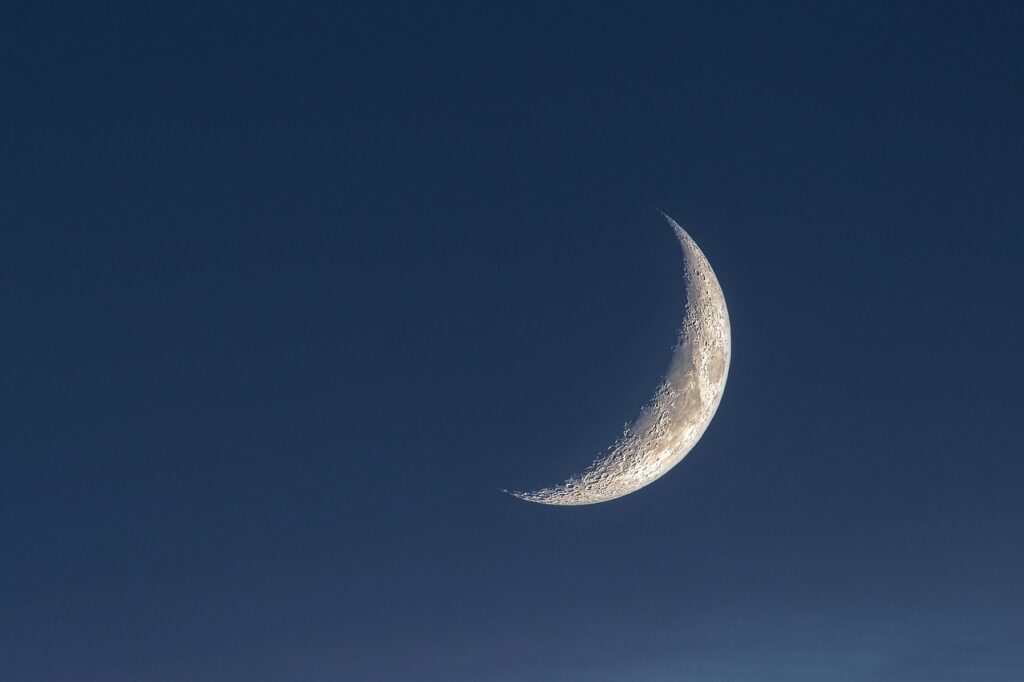
Laylatul Qadr is one of the most sacred nights in the Islamic calendar. It is a commonly held belief that it occurs on the 27th of Ramadan. However, scholars of Hadith recommend focusing on the last 10 nights of Ramadan, especially the odd nights, as it is most likely to have occurred on one of these nights.
When asked by Aisha, may Allah (SWT) be pleased with her, on what to say on Laylatul Qadr, the Prophet (ﷺ) said:
Allaahumma innaka ‘afuwwan tuhibb ul-‘afwa fa‘fu ‘anni.
Tirmidhi
اللَّهُمَّ اَنْتَ عَفُوٌّ، تُحِبُّ الْعَفْوَ فَاعْفُ عَنِّي
“O Allah, You are Most Forgiving, and You love forgiveness; so forgive me.”
This dua reminds us that Allah (SWT) loves nothing more than His servants turning to Him and asking for help. As such, we should make this dua, as well as others, often on Laylatul Qadr and include it in our regular supplications throughout the year.
Dua for success
Ramadan is the month when we should try to build as many good habits as possible and increase our remembrance of God.
This dua asks Allah (SWT) to guide us on the straight path. It is also a dua of gratitude; one that asks and thanks Him for His mercy.
Rabbana la tuzigh quloobana ba’da idh hadaytana wa hab lana min ladunka rahmah innaka antal-Wahhab
Al-Imran, 3:8
رَبَّنَا لَا تُزِغْ قُلُوبَنَا بَعْدَ إِذْ هَدَيْتَنَا وَهَبْ لَنَا مِن لَّدُنكَ رَحْمَةً ۚ إِنَّكَ أَنتَ الْوَهَّابُ
“Our Lord! Let not our hearts deviate after You have guided us, and grant us mercy from You. Truly, You are the Bestower.”
Dua for the good of this world and the next
Within the Quran, Allah (SWT) praises those who ask Him for good for this life and the afterlife. For He loves those who remember Him, as He is Al-Wahhab, the All-Giving.
This dua of asking Allah (SWT) for goodness in both lives was often recited by Prophet Muhammad (ﷺ) , as reported by Anas, may Allah be pleased with him.
Rabbana atina fid-dunya hasanatan wa fil ‘akhirati hasanatan waqina ‘adhaban-nar
Al-Baqarah, 2:201
رَبَّنَا آتِنَا فِي الدُّنْيَا حَسَنَةً وَفِي الْآخِرَةِ حَسَنَةً وَقِنَا عَذَابَ النَّارِ
“Our Lord! Give us in this world that which is good and in the Hereafter that which is good, and save us from the torment of the Fire!”
Dua for Good Health and Character
As Muslims, having good health and practising good conduct are important in Islam. We are also encouraged to regularly seek Allah (SWT)’s protection and shelter from disease and misconduct.
This dua allows us to ask Allah (SWT) for good health, conduct and success. It’s a good supplication to recite often, in Ramadan and beyond.
Allahumma innee asa’luka sihhatan fi eeman, wa eeman fi husni khuluq, wa najahee yatba’ahu falah, wa rahmaatan minka wa ridwaana
Musnad Ahmad
اللهُمَّ إِنِّي أَسْأَلُكَ صِحَّةَ إِيمَانٍ وَإِيمَانًا فِي خُلُقٍ حَسَنٍ وَنَجَاحًا يَتْبَعُهُ فَلَاحٌ يَعْنِي وَرَحْمَةً مِنْكَ وَعَافِيَةً وَمَغْفِرَةً مِنْكَ وَرِضْوَانًا
“O Allah, I ask You for the health of my faith, such faith in good character, and salvation leading to success, Your mercy, Your wellness, Your forgiveness, and Your pleasure.”
Dua for Rizq (provision)
In Islam, Muslims are encouraged to seek beneficial knowledge, and there is no better place to ask than Allah (SWT).
The dua for Rizq seeks Allah (SWT)’s blessing for abundant, halal sustenance, reflecting trust in His provision and care for our worldly and spiritual needs. The Prophet Muhammad (ﷺ) used to recite this dua during Fajr (the morning prayer).
Allahumma inni as’aluka ‘Ilman naafi’an, wa rizqan tayyiban, wa ‘amalan mutaqabbalan
Sunan Ibn Majah
اَللَّهُمَّ إِنِّي أَسْأَلُكَ عِلْمًا نَافِعًا ,وَ رِزْقًا طَيَّبًا , وَ عَمَلاً مُتَقَبَّلاً
“Oh, Allah! I ask You for knowledge that is of benefit, a good provision and deeds that will be accepted.”
Dua for the Ummah
Around the world, many of our brothers and sisters face incredible hardships. It’s important to make dua to ask Allah (SWT) to grant them ease and patience and fulfil their needs.
Allahumma aslih Ummata Muhammad. Allahumma farrij ‘an Ummati Muhammad. Allahumma Rham Ummata Muhammad [sallAllahu alayhi wasalam]
Hilyat al-Awliya
اللَّهُمَّ أَصْلِحْ أُمَّةَ مُحَمَّدٍ اللَّهُمَّ فَرِّجْ عَنْ أُمَّةِ مُحَمَّدٍ اللَّهُمَّ ارْحَمْ أُمَّةَ مُحَمَّدٍ
“O Allah! Improve (help) the state of the Ummah of Muhammad. O Allah! Grant ease to the Ummah of Muhammad. O Allah! Have mercy on the Ummah of Muhammad.“
As we navigate the days and nights of Ramadan, let these duas be your companions, beautifying your prayers and drawing you closer to the Almighty.
Remember, Ramadan is not just a test of physical endurance. It is also a time to nourish, heal and elevate the heart and soul.
As we aim to seek as many rewards as possible in this blessed month, we pray that Allah SWT helps us to clean our hearts and make us sincere in our worship.
May Allah (SWT) allow us to be better Muslims and accept our acts of worship in this blessed month of Ramadan, ameen!

